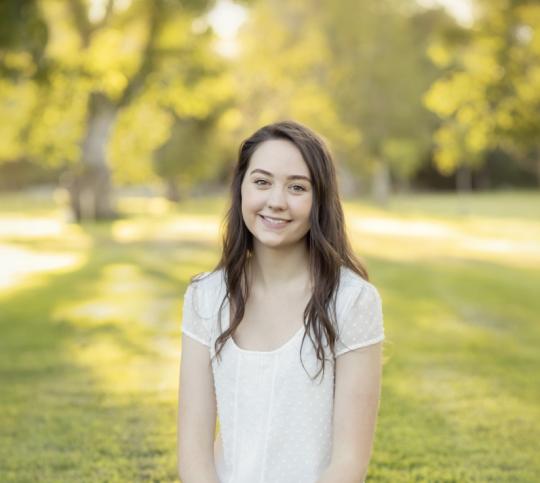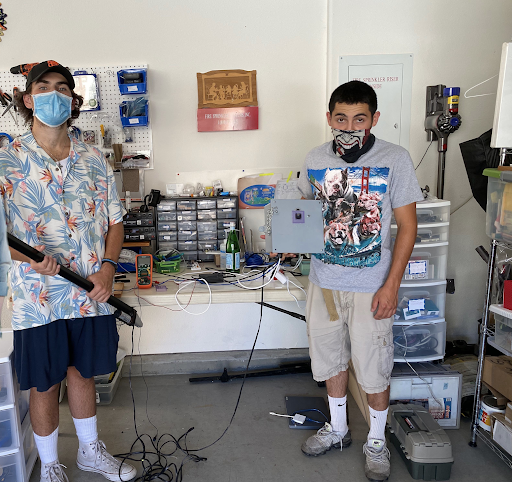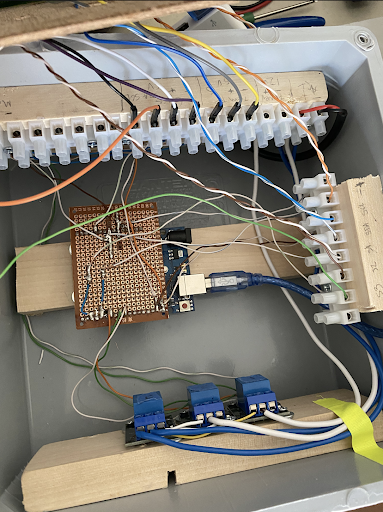Hard Work Has Paid Off For These Electrical Engineering Students
During the Spring 2020 semester, a small group of Electrical Engineering students began a partnership with the Petaluma Bounty Farm called the Greenhouse Project which was overseen by Dr. Farahmand, a professor in the Engineering Science Department. The students focused on engineering a device that would automatically regulate the temperature of the greenhouse. “The students did the project purely on a voluntary basis. I would not exaggerate if I say they have spent at least 200 hours each on the project,” said Dr. Farahmand.
Reyna Yagi, the farm manager of Petaluma Bounty Farm, explained that the farm has a small staff that “aim(s) to establish various community partnerships to help fulfill our mission of sustainable agriculture education and equitable food access.” She elaborated on the project itself saying that the Greenhouse Project will “advance our greenhouse operation through mechanized environmental controls, subsequently removing potential strains to plants and alleviating staff labor.”
This project allowed students to apply their classroom knowledge in order to create a tangible product. "I appreciated the Greenhouse Project because it allowed me to expand my knowledge of how electrical engineering could be applied into real-world scenarios. We spent a lot of time on this project, and are very excited to have created a real-world automated system that fulfills what the consumer asked of us", said student Nathan Candler. Student Andres Rivera also reflected on the project saying, "The project gave us a unique look into how senior design works."
The students involved have spent over 6 months working on the Greenhouse Project and the completion of the project is an exciting accomplishment for both the students and Petaluma Bounty. Student Tony Jang stated, "When we started this project it seemed like it would be a daunting task, but we persevered, and now have a project I think all of us can be proud of. I'm glad I was able to use my knowledge to help others."
Yagi had this to say when reflecting on the partnership, “We are so pleased the students chose this project to pursue, not just because they found it to be a great educational challenge, but also because we always root for the merging of different scientific and social lenses through which one can look at a farm.” Yagi also noted that she “enjoyed learning and observing the student's approach to problem-solving, in particular how they aspired to make an adaptive, inter-linked and versatile product that really focused on addressing the various needs of the farmer.”
This project was a long process filled with hard work and the students involved deserve to be acknowledged and celebrated for their accomplishment. “I think, being sophomore students, they have done an amazing job,” said Dr. Farahmand.

Author: Stephanie Farris





